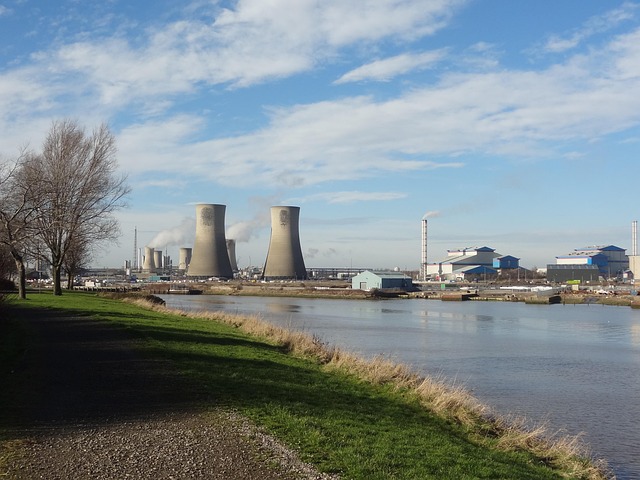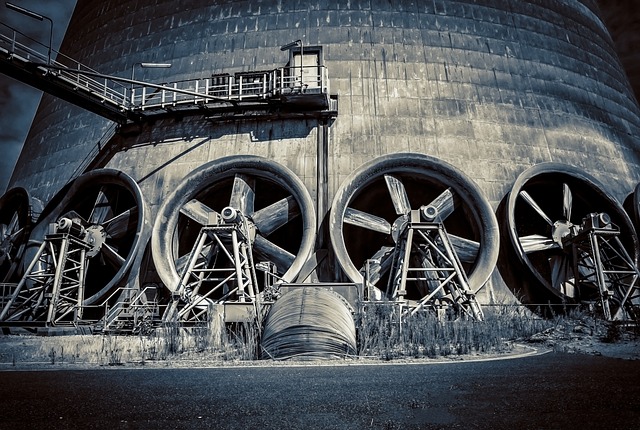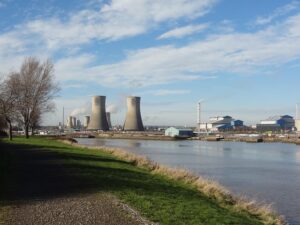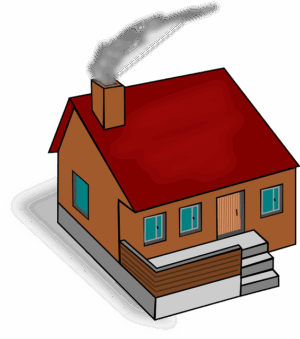Industrial unit heaters, particularly gas-fired models, are vital for maintaining optimal temperatures in large operations like warehouses and manufacturing facilities. They offer rapid temperature control, efficient forced air heating, and adjustable BTU ratings, making them versatile for diverse needs. Gas-powered heaters excel in quick responses to changing heat requirements, crucial for heavy-duty construction sites and industrial applications. With modern technologies, these heaters ensure uniform temperature distribution across expansive spaces, minimizing downtime and maximizing productivity, especially in manufacturing. Prioritizing safety in operation requires professional installation, regular maintenance, adequate ventilation, employee training, and selecting appropriate BTU ratings for specific spaces.
Industrial unit heaters play a vital role in maintaining optimal temperatures across various sectors. This article delves into the benefits of gas-powered models, which offer unparalleled rapid temperature control. We explore how these heaters quickly respond to changing needs, making them ideal for dynamic environments. From key technologies enabling swift heating to safety practices, we cover all aspects. Discover why understanding industrial unit heaters and their gas advantages is essential for efficient operations and enhanced productivity.
- Understanding Industrial Unit Heaters: Their Role and Benefits
- Gas Power: The Rapid Temperature Control Advantage
- Key Features and Technologies Enabling Quick Heating
- Applications: Where Gas-Powered Unit Heaters Excel
- Safety Considerations and Best Practices for Efficient Operation
Understanding Industrial Unit Heaters: Their Role and Benefits

Industrial unit heaters play a pivotal role in maintaining optimal temperatures across various industrial settings. These powerful heating solutions are designed to cater to the unique demands of large-scale operations, offering rapid and precise temperature control. In the realm of warehouse heating and manufacturing facilities, where maintaining consistent conditions is paramount, gas fired heaters emerge as a reliable choice.
Compared to electric unit heaters, their gas-powered counterparts offer several advantages, especially in heavy duty construction and industrial applications. Suspended heaters, for instance, provide efficient forced air heating, ensuring every corner of the workspace is evenly heated. Additionally, these heaters are easily adjustable, allowing facilities to quickly respond to changing temperature requirements. The BTU ratings of these units directly translate to their heating capabilities, making them versatile tools for commercial heating needs across diverse industrial environments.
Gas Power: The Rapid Temperature Control Advantage

Gas-powered industrial unit heaters offer a significant advantage in rapid temperature control, making them indispensable in demanding commercial heating scenarios such as warehouse heating and manufacturing facilities. Unlike electric unit heaters or suspended heaters, gas fired heaters can quickly respond to changing heat requirements due to their direct combustion process. This real-time adjustment is crucial for maintaining optimal temperatures in large, heavy duty construction sites and industrial applications.
The efficient forced air heating provided by these heaters ensures quick distribution of heated air throughout the space, enabling uniform temperature control. Moreover, gas-powered models often come with adjustable settings that allow for precise BTU ratings, catering to various needs within a single facility. This versatility makes gas fired heaters a preferred choice in industrial sectors where rapid and reliable temperature regulation is paramount.
Key Features and Technologies Enabling Quick Heating

Industrial unit heaters equipped with cutting-edge technologies offer rapid temperature control, making them indispensable for various industrial applications, including warehouse heating and manufacturing facilities. Key features such as suspended heaters, forced air heating, and high BTU ratings ensure efficient distribution of heat across large spaces, meeting the demanding needs of commercial heating in heavy duty construction settings.
These gas fired heaters leverage advanced engineering to achieve swift heating times, making them ideal for dynamic environments. Electric unit heaters, while offering their own advantages, often fall short in terms of speed and scalability compared to their gas counterparts. Rapid heating capabilities translate to minimized downtime and increased productivity in manufacturing facilities, where consistent and prompt temperature control is paramount.
Applications: Where Gas-Powered Unit Heaters Excel

Gas-powered unit heaters shine in various industrial applications due to their rapid temperature control capabilities and versatile design. They are particularly effective in warehouse heating and manufacturing facilities, where maintaining optimal temperatures is crucial for efficiency and worker safety. These heaters can quickly respond to changing heat demands, making them ideal for dynamic environments.
In heavy duty construction sites, gas fired heaters provide a reliable source of warmth, ensuring that workers remain comfortable during prolonged outdoor shifts. Suspended heaters and forced air heating systems offer comprehensive coverage, catering to the unique needs of large, open spaces like factories and workshops. With varying BTU ratings, these heaters can be tailored to specific areas, balancing energy efficiency with targeted heating, making them a preferred choice over traditional electric unit heaters in industrial applications.
Safety Considerations and Best Practices for Efficient Operation

When operating gas-powered industrial unit heaters, safety should be the top priority for any business managing warehouse heating or manufacturing facilities. These powerful tools, designed for heavy duty construction and industrial applications, offer rapid temperature control, making them essential in commercial heating. However, their size and energy output necessitate careful consideration to prevent accidents.
To ensure efficient operation and maintain a safe environment, best practices include proper installation by qualified professionals, regular maintenance checks to identify potential leaks or malfunctions, and ensuring adequate ventilation in the area of use. Additionally, training employees on safety protocols for gas fired heaters, such as how to correctly operate and maintain them, is crucial. The selection of suitable heaters with appropriate BTU ratings for the specific space is also key to preventing excessive heating and potential hazards while promoting energy efficiency across industrial applications.
Industrial unit heaters, powered by gas, are game-changers in rapid temperature control. With their efficient heating capabilities, these units offer a range of benefits, from quick response times to precise temperature regulation. Key features like advanced combustion technologies and modulating burners ensure optimal performance. Gas-powered heaters find applications in various industries, from outdoor construction sites to indoor warehouse environments. To ensure safe and efficient operation, it’s crucial to follow best practices, including regular maintenance and proper ventilation. By understanding these heaters’ capabilities and implementing safety measures, businesses can leverage the advantages of gas-powered industrial unit heaters for enhanced operational efficiency.














